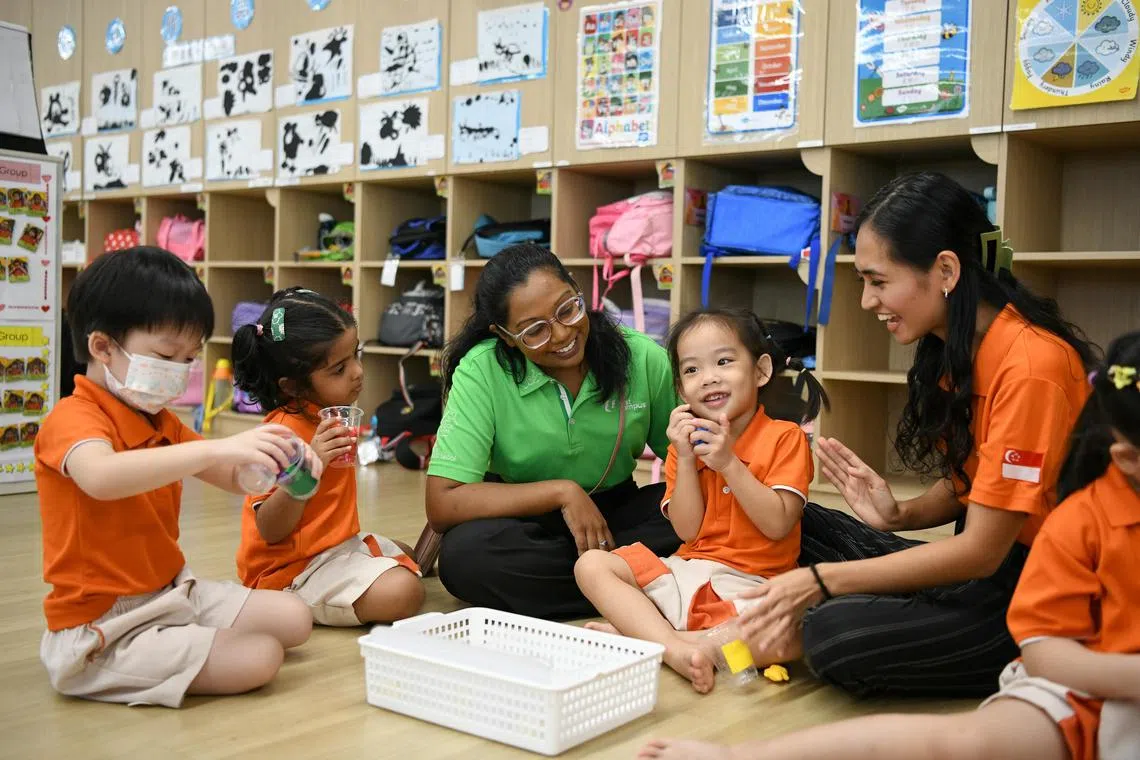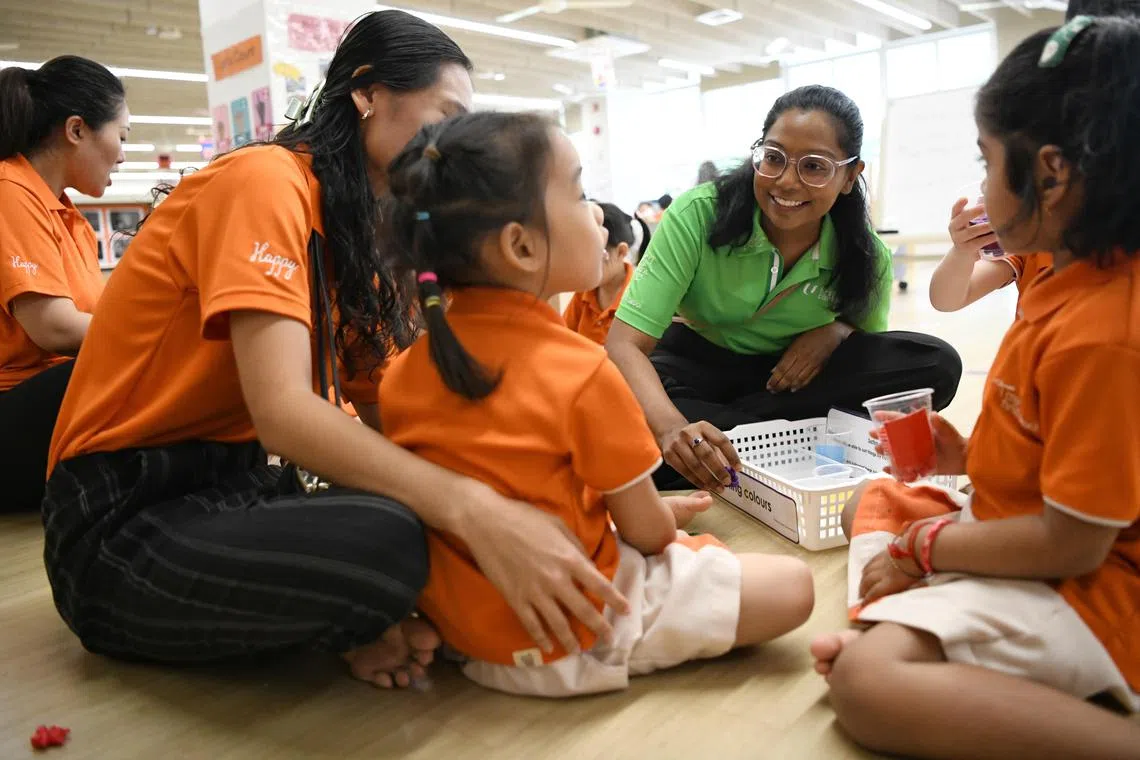More support for pre-schoolers with developmental needs from NTUC First Campus
Sign up now: Get ST's newsletters delivered to your inbox

Under a new programme, development support specialists work closely with teachers to identify goals for children.
ST PHOTO: SHINTARO TAY
SINGAPORE – Pre-school children with developmental needs will receive more support in the classroom, with a new programme by NTUC First Campus (NFC) that started in January 2023 as a three-year pilot.
The Development Support Specialist (DSS) programme, which was launched on Wednesday, aims to provide resources to help teachers better integrate children who require medium levels of support into the classroom.
Currently, 60 children and 50 educators across seven My First Skool centres are involved, and NFC will review the initiative annually. An eighth centre will come on board by July.
Under the programme, professionals known as development support specialists trained in early intervention work closely with teachers to identify goals for children, such as building eye-hand coordination, motor skills in feeding and structured tasks, as well as communication.
They provide tailored strategies and hands-on help to address each child’s learning needs while also guiding teachers to improve their classroom management.
Ms Sun Xueling, Minister of State for Social and Family Development, said at Wednesday’s launch at a My First Skool centre in Rivervale Crescent that the DSS programme complements the Early Childhood Development Agency’s (ECDA’s) efforts to make pre-schools more inclusive, and better support children with developmental needs.
“Over the next two years, we will be adding 1,400 more places to support children with developmental needs. We will serve 80 per cent of children with developmental needs requiring medium to high levels of early intervention support by 2027, up from 60 per cent today,” she added.
ECDA will also implement its Inclusive Support Programme
Ms Louisa Chng, NFC’s chief child support officer, said the new DSS initiative does not replace the need for intervention provided by the Early Intervention Programme for Infants and Children (Eipic) for those requiring medium to high support.
It also does not replace ECDA’s Inclusive Support Programme, which provides early intervention within the pre-school setting.
Rather, DSS will cater to three types of children: those who are in Eipic, those who are on the wait list to attend Eipic, and children who have not been formally assessed but are identified by teachers to require medium support.
“Over the last few years, with increased awareness and earlier diagnosis, we have seen an increase in the number of children requiring developmental support,” said Ms Chng. They may have conditions such as global developmental delay, speech delay and autism.

Development support specialist Vishaalini Vasanthanathan (in green) interacting with pre-schoolers at My First Skool at 49 Rivervale Crescent on Wednesday.
ST PHOTO: SHINTARO TAY
Ms Xie Meng’s daughter Evelyn, who is 3½ years old and has some delay in her motor skills due to muscle weakness, is on the DSS programme at My First Skool in Rivervale Crescent. She also started attending Eipic three times a week in January.
“She also has some delays in speech and language, cognitive and socio-emotional skills and difficulty in self-help skills like feeding herself, bathing and changing,” said Ms Xie, 41, a part-time pre-school teacher.
Since receiving more support, Evelyn has been able to eat independently and understand simple instructions.
“The most important thing is that she can mingle with her peers and she’s doing the same activities as them together even if it’s simplified,” said Ms Xie.



